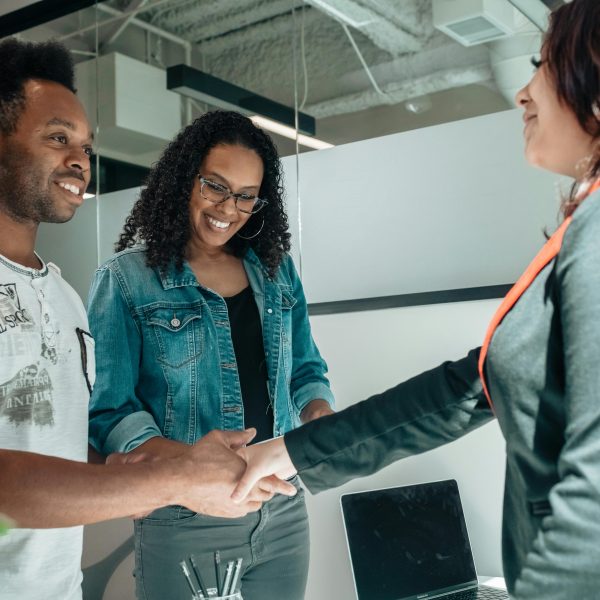Empathy often described as an aspect of relationships goes beyond just being a trendy term, in the world of interpersonal connections. It acts as a tool that can create relationships and encourage mutual understanding among people. In the art of communication, empathy takes on a crucial role by bridging the gap between hearts and minds. This piece explores the significance of empathy in enhancing relationships and offers advice on how to nurture it within ourselves while fostering it in our interactions with others.
Grasping the Concept of Empathy
Empathy, at its core, involves comprehending and sharing another person’s emotions. It requires us to put ourselves in someone’s position, view the world from their perspective, and feel their feelings as if they were our own. Unlike sympathy, which involves showing compassion for someone’s struggles without grasping them, empathy demands a connection on both emotional and cognitive levels.
In relationships, empathy acts as a catalyst for closeness and bonding. By empathizing with our partners, friends, or family members, we demonstrate that we value their experiences, thoughts, and emotions. Fostering trust by validating one’s world helps strengthen connections and lays the groundwork for relationships based on mutual understanding and support.
The Importance of Empathy in Building Stronger Bonds
Empathy acts as a bridge that smooths out the challenges in interactions between individuals, promoting harmony and collaboration. Here’s how empathy contributes to the well-being and vitality of relationships:
- Improved Communication: Empathy allows us to listen attentively to our partner’s worries, viewpoints, and needs. By empathizing with their emotions and validating their experiences, we create a space for honest communication. This promotes closeness and prevents misunderstandings or conflicts from escalating.
- Deepened Emotional Connections: When we show empathy towards our loved ones, we enhance our bond with them. Sharing vulnerabilities, fears, and joys fosters closeness and intimacy that goes beyond boundaries. Emotional closeness cultivates trust and strength, helping couples navigate life’s challenges together.
- Conflict Resolution: Empathy is key in resolving conflicts. By understanding our partner’s perspective and acknowledging their feelings, we demonstrate respect and empathy. This sets the stage for compromise, negotiation, and finding solutions that work for both parties, instead of resorting to blame or defensiveness.
- Developing Compassion for Ourselves: It’s crucial to show empathy towards ourselves to foster relationships. By treating ourselves with kindness and empathy, we can better empathize with others. This involves recognizing our emotions and needs without criticism, taking care of ourselves, and establishing boundaries to safeguard our well-being, which ultimately enhances our ability to empathize with others.
- Establishing Trust and Safety: Empathy nurtures a sense of trust and safety within relationships. When we feel heard and supported by our partners, we are more likely to trust them and open up vulnerably. This foundation of trust is essential for relationships, creating a space that allows individuals to express themselves authentically and seek solace in times of distress.
Practical Approaches for Fostering Empathy
Although empathy comes naturally to humans, it’s also a skill that can be developed through practice. Here are some practical tips for cultivating empathy in your relationships:
- Engage in Active Listening: Practice listening by dedicating your attention to the speaker, making eye contact, and reflecting their emotions and concerns back to them. Avoid interrupting or preparing responses while they speak and aim to grasp their perspective without passing judgment.
- Understanding Perspectives: Try to see things from the person’s point of view and consider their emotions and needs. This helps you develop empathy by broadening your understanding of viewpoints and experiences.
- Acknowledging Emotions: Recognize the feelings and experiences of others even if you don’t share the sentiments. Show empathy by acknowledging their emotions with statements like “I can tell you’re upset” or “It seems like you’re really frustrated.” Validating their feelings fosters a sense of connection and empathy.
- Reflecting on Yourself: Take moments to think about your thoughts, emotions, and responses in situations. Evaluate how your words and actions affect others and whether they reflect your values and intentions. Self-reflection boosts self-awareness and empathy towards both yourself and others.
- Nurturing Compassion: Develop compassion for yourself and others through acts of kindness, gratitude, and forgiveness. Engage in activities that encourage empathy, such as volunteering, reading literature from different perspectives, or having conversations with individuals from varied backgrounds.
Empathy plays a role in building relationships, acting as a guiding light for connection and understanding in a world often filled with miscommunication and discord. By embracing empathy within ourselves and nurturing it in our connections with others, we have the power to enhance the quality of our relationships. This leads to a sense of closeness, trust, and mutual understanding. By making an effort to understand each other’s happiness and struggles, dreams and worries, we create connections that go beyond limits. This enriches our lives with love, kindness, and a sense of shared humanity.






